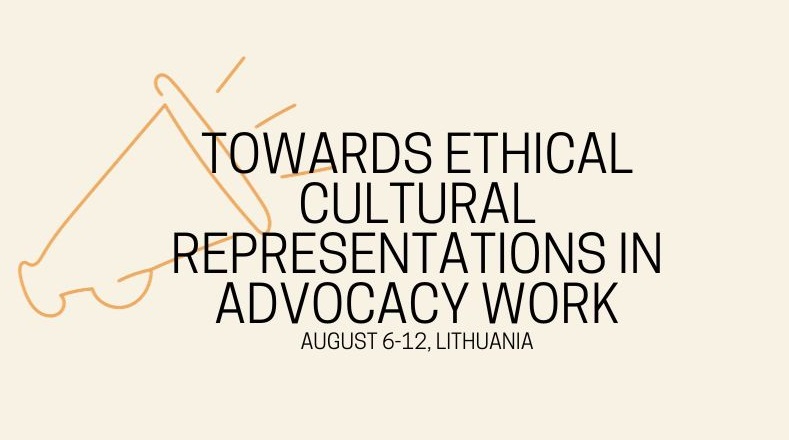Towards Ethical Representation of Social/Cultural Groups in Advocacy Work: A Lithuanian Erasmus+ Funded Project
In today's fast-paced world, advocacy work plays a crucial role in addressing societal issues and promoting positive change. However, it is essential to acknowledge that the representation of cultural and social groups in advocacy efforts can sometimes be problematic. Have you ever noticed that some advertisements or campaigns inadvertently reinforce stereotypes rather than deconstruct them? How can we ensure that our advocacy campaigns ethically represent various groups without causing more harm than good? These questions lie at the heart of a recent Erasmus+ funded project that took place in Lithuania, titled "Towards Ethical Representation of Social/Cultural Groups in Advocacy Work."
Those involved in advocacy work often find themselves in positions where they need to represent the groups they are working with, whether it be for fundraising or advocacy campaigns. However, representing these groups can be challenging, and without careful consideration, it may inadvertently reproduce stereotypes and conventional discourses rather than foster understanding of others. Therefore, the project aimed to tackle the pressing issue of cultural and social representations in advocacy work. It sought to promote more culturally sensitive and inclusive representations of ethnic and social groups in advocacy campaigns.
The project led and coordinated by the Lithuanian applied anthropology organisation Anthropos, involved partner organisations from Spain, the Netherlands and Latvia. Partner organisations have an extensive experience of work with a wide range of ethnic and social minorities, which allows for a diverse and insightful collaborative effort. Together, partners shared experiences and addressed the issues of the ethical and culturally sensitive representation of ethnic and cultural minorities and various social groups in the advocacy process.
The origins of the project can be traced back to Anthropos' ongoing commitment to cultural representations and cultural sensitivity in secondary school education programs. In 2020, the organisation initiated an appeal to the National Board of Education in Lithuania, addressing the inadequate representation of the cultural others in secondary school geography textbooks. Those representations were eurocentric, ethnocentric, stereotypical, and perpetuated developmental and neo-colonial discourses. The appeal led to a fruitful partnership between Anthropos and the National Education Agency of Lithuania, resulting in workshops and methodological advice aimed at improving cultural representation in education materials. This initiative garnered a Special Mention at Why the World Needs Anthropologists, the annual symposium of the Applied Anthropology Network of the European Association of Social Anthropologists. As this partnership continued to grow, Anthropos saw the opportunity to expand the conversation about ethical representation beyond the educational sector and into the realm of advocacy.
The project itself involved a five-day training program that utilised both non-formal and formal education methods and the preparation of a set of guidelines for ethical representation. Participants explored historical contexts and issues surrounding the representation of cultural and social others. This included discussions on power relationships, inequality perpetuated through representations, and the broader implications of such misrepresentations. The emphasis was on co-creating knowledge and skills while sharing diverse experiences and backgrounds among participants. Therefore presentations and workshops were given by the members of participating organisations - Padėk Pritapti, Sienos grupė, CAAT projects, Izglītības iniciatīvu centrs, Ecos Do Sur and guest lecturer Dr. Daiva Bartušienė. The final days of the training program were aimed at putting theory into practice. Participants explored good and bad examples of representations in the Museum of Practices and finally brainstormed ideas for future guidelines for ethical representation in advocacy work.
Organisations that have partnered for this project aim to grow together and continue promoting ethical representation in advocacy work. In order to do so, they have ambitious plans for the future development of the project. The guidelines that have been developed during the run of the current project are to be developed into a more comprehensive and user-friendly tool, that would benefit other NGOs that work with various social and cultural groups and, in particular, with youth.
Here you can find the short guidelines created during the training course on ethical representations of social and cultural groups: „Guidelines for Ethical Representations of Social and Cultural Groups in Advocacy Work“





